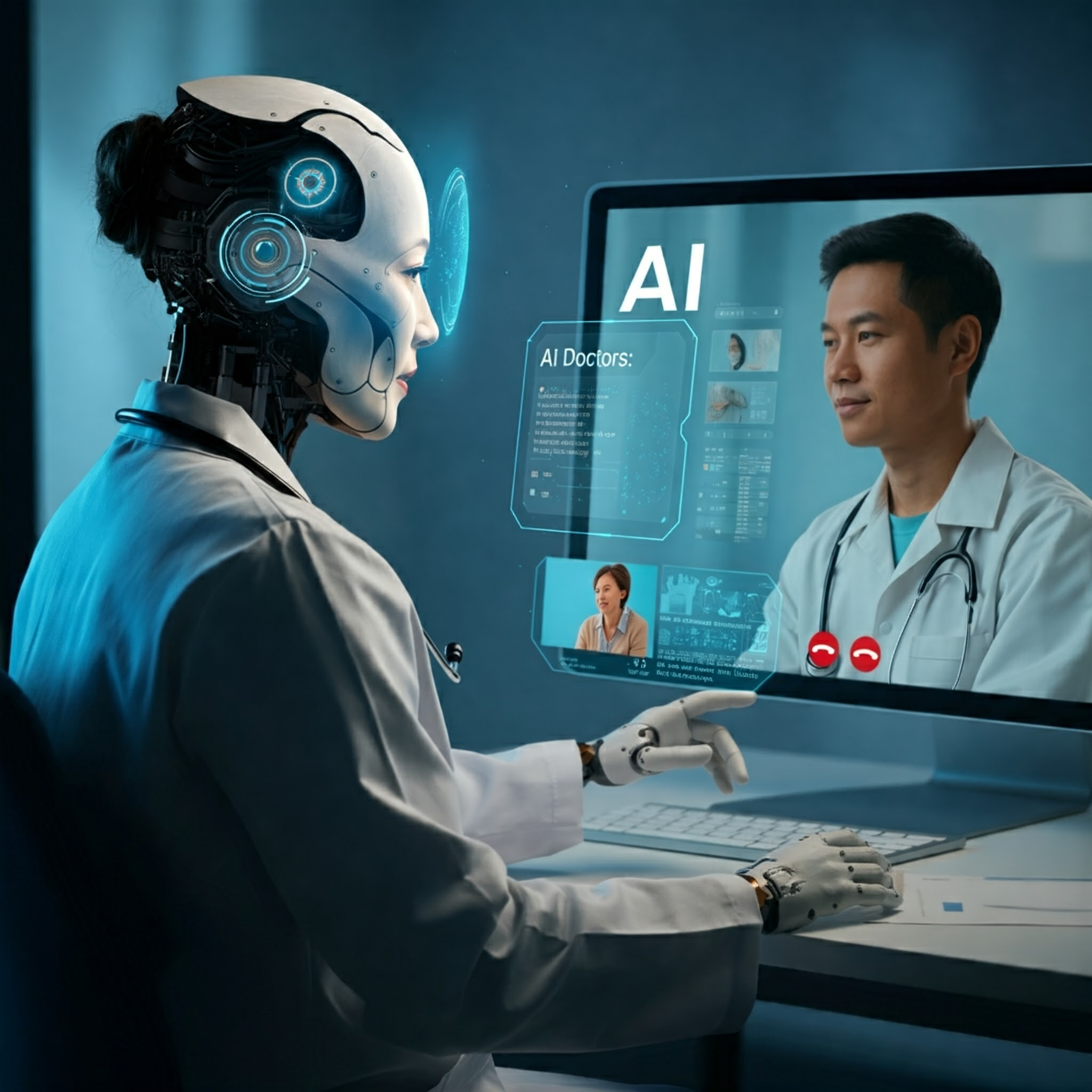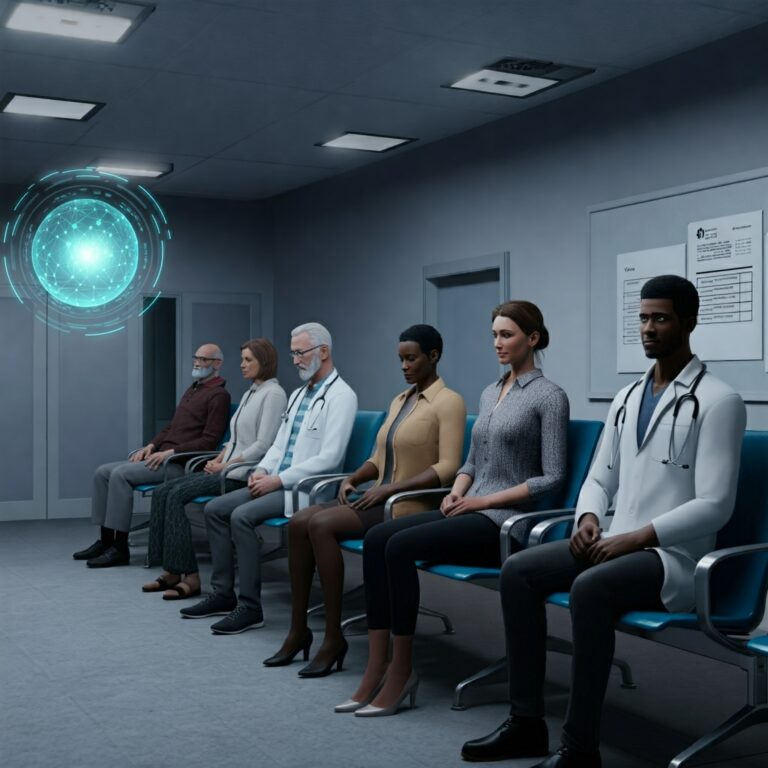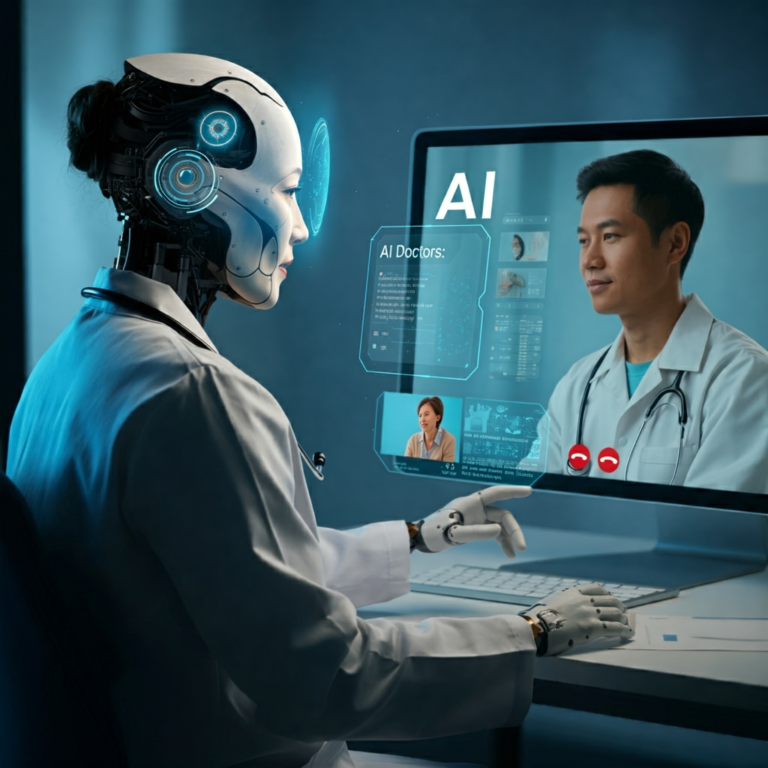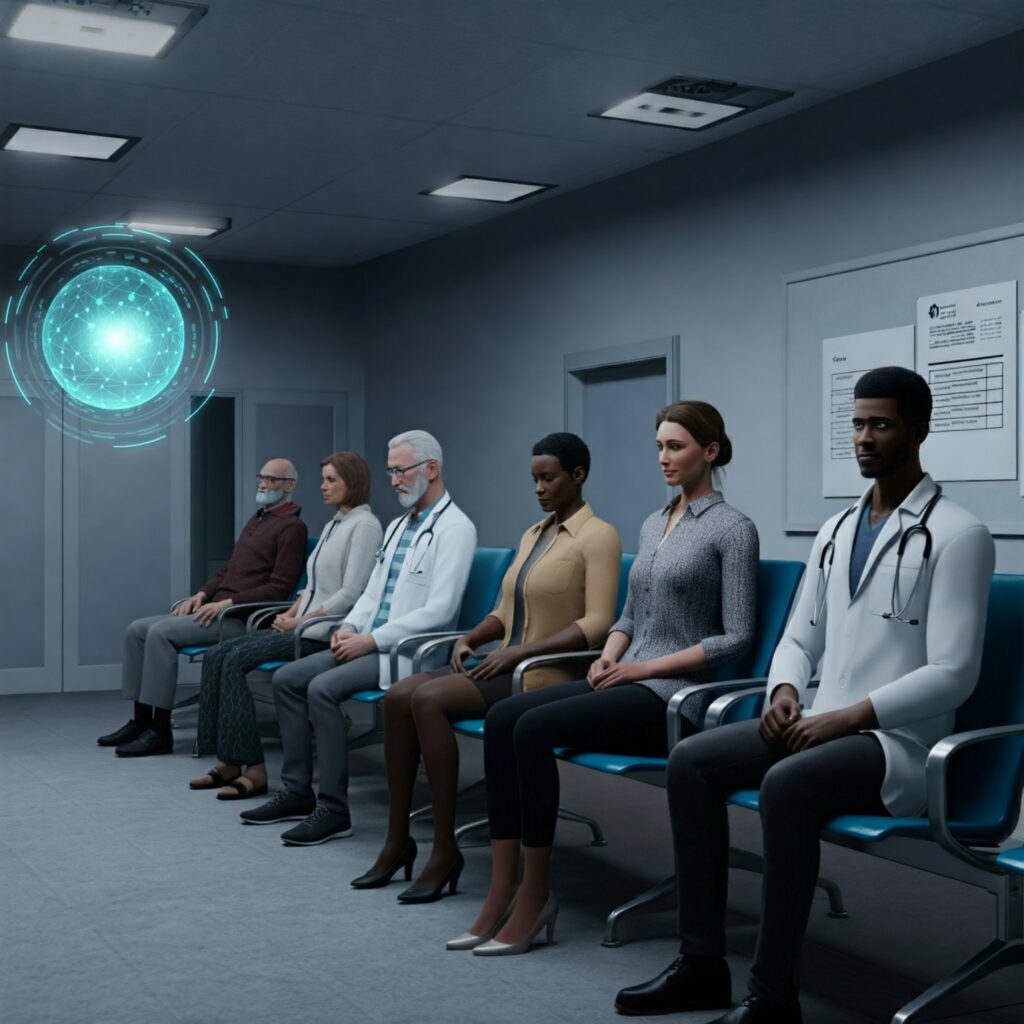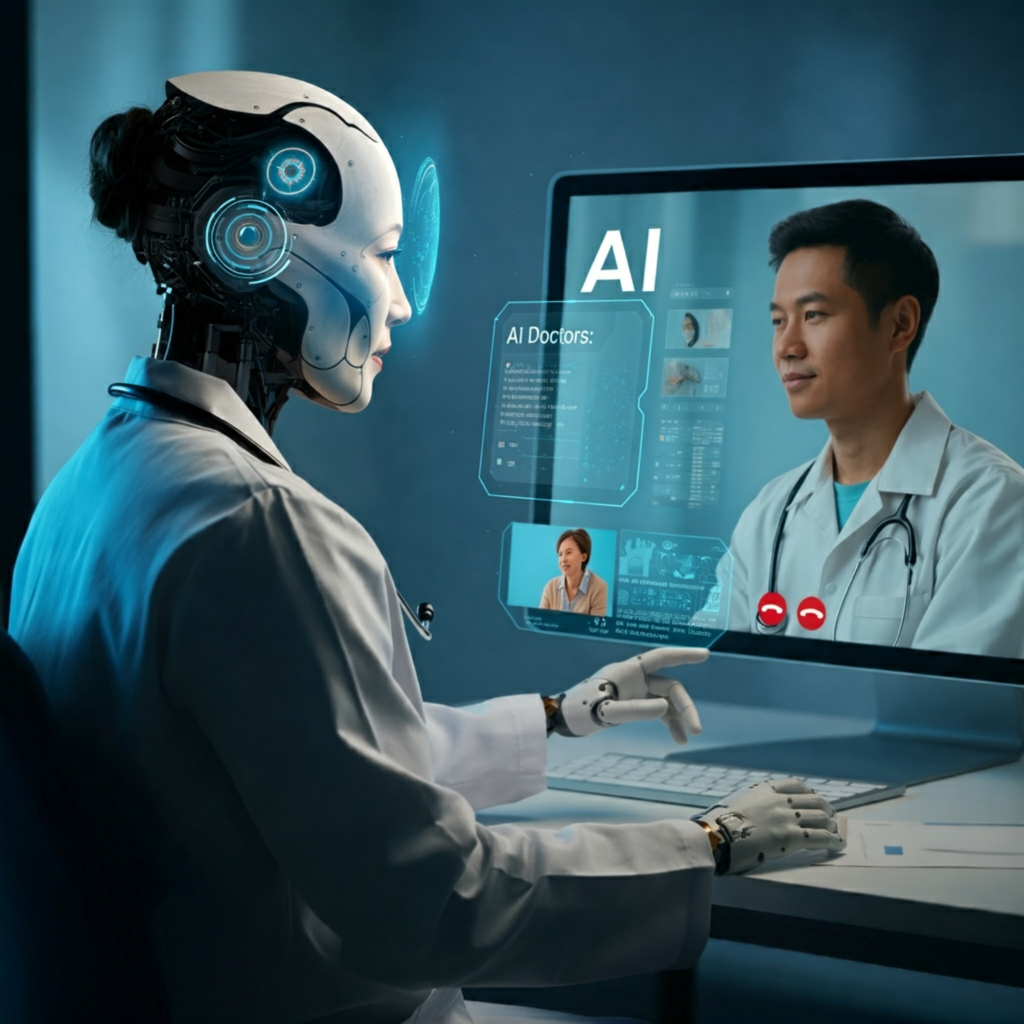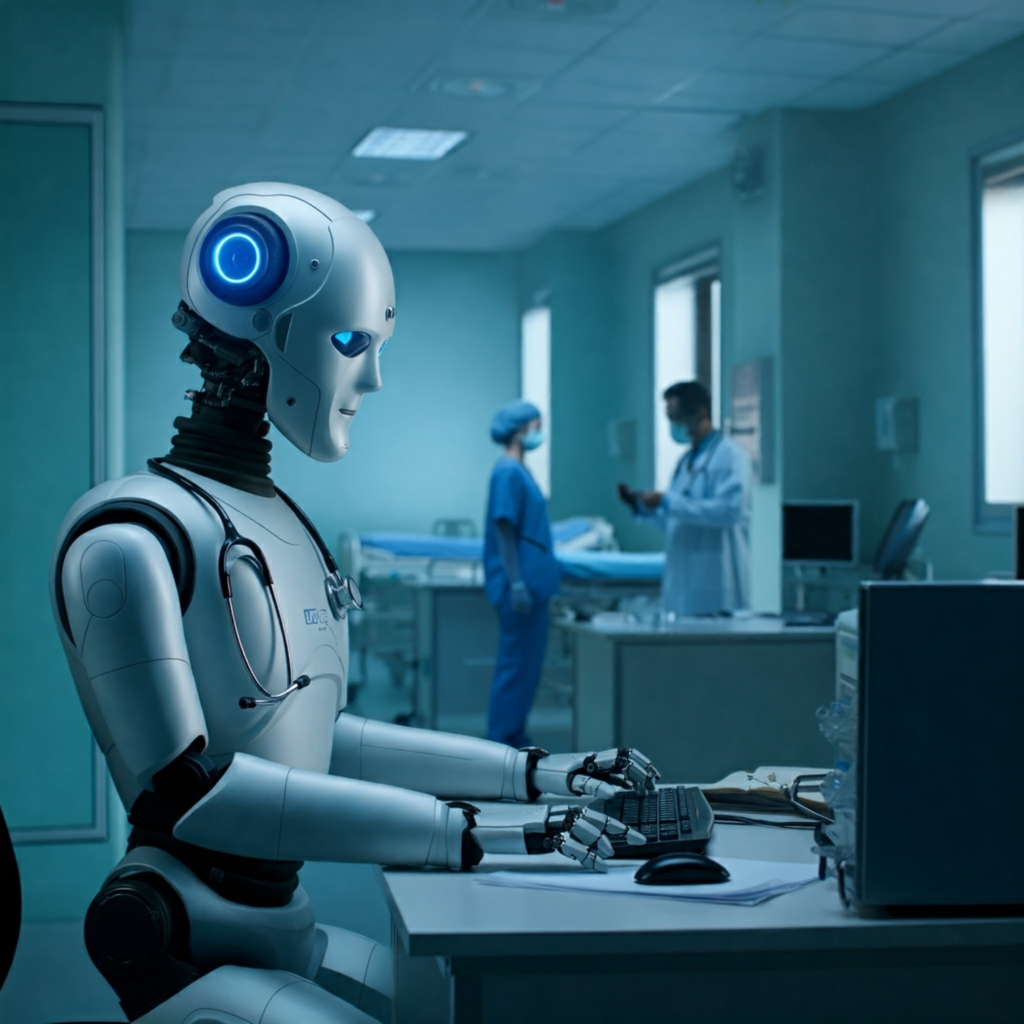AI Doctors: Will Telemedicine Replace Human Physicians?
The rise of telemedicine and the rapid advancement of artificial intelligence (AI) are transforming healthcare as we know it. From virtual consultations to AI-powered diagnostic tools, technology is increasingly playing a central role in how we access and receive medical care. This raises a crucial question: will AI doctors eventually replace human physicians altogether? This article delves into this complex issue, exploring the current state of telemedicine, analyzing the potential impact of AI, and offering insights into the future of healthcare. While AI will undoubtedly reshape the medical landscape, complete replacement of human physicians is unlikely. Instead, we are moving towards a future of collaborative care, where AI augments human expertise, improves efficiency, and expands access to quality healthcare.
(1) Personalized Medicine Through AI: Tailoring Treatment Plans and Medication
The convergence of AI and telemedicine is paving the way for truly personalized medicine. AI algorithms can analyze vast amounts of patient data, including medical history, genetic information, lifestyle factors, and even environmental data, to identify patterns and predict individual responses to treatments. This allows for the development of tailored treatment plans and medication regimens optimized for each patient’s unique needs.
Currently, several companies are leveraging AI in telemedicine for personalized care. For instance, some platforms use AI to analyze patient symptoms and recommend appropriate specialists, while others utilize AI-powered chatbots to provide personalized health advice and medication reminders. AI is also being used to develop personalized drug dosage recommendations, minimizing side effects and maximizing efficacy.
However, challenges remain. Data privacy and security are paramount concerns, as is the potential for algorithmic bias. Furthermore, the integration of AI into existing healthcare systems can be complex, requiring significant investment and infrastructure upgrades. Despite these challenges, the potential benefits of personalized medicine through AI are immense, driving further innovation and investment in this space.
(2) Key Insights and Analysis
The integration of AI within telemedicine is fundamentally changing the dynamics of the healthcare industry. Emerging technologies, such as computer vision for image analysis and natural language processing for patient interaction, are automating tasks previously performed by humans. This increases efficiency, reduces costs, and allows physicians to focus on more complex cases.
Market trends indicate a growing demand for AI-powered telemedicine solutions. The convenience and accessibility of virtual care are appealing to both patients and providers. Moreover, the increasing prevalence of chronic diseases and the aging global population are driving the need for innovative healthcare solutions that can be delivered remotely.
The implications of these trends are far-reaching. AI can empower patients to take greater control of their health, while also reducing the burden on healthcare systems. However, careful consideration must be given to the ethical implications of AI in healthcare, including issues of bias, transparency, and accountability.

(3) Outlook and Predictions: The Future of Telemedicine and AI Integration
The future of telemedicine is inextricably linked to the continued development and integration of AI. We can anticipate further advancements in areas such as remote patient monitoring, virtual diagnostics, and personalized treatment plans. AI-powered platforms will become increasingly sophisticated, enabling more complex medical procedures to be performed remotely.
However, challenges will persist. Ensuring equitable access to technology, addressing the digital divide, and maintaining patient trust are crucial considerations. Regulatory frameworks will need to adapt to the rapid pace of technological change, balancing innovation with patient safety and data privacy.
For businesses and professionals operating in the telemedicine space, embracing AI is essential for future success. Investing in AI-powered solutions, upskilling the workforce, and fostering collaborations between technology companies and healthcare providers will be key to navigating the evolving landscape.
(4) Conclusion
AI is poised to revolutionize healthcare delivery, and its integration with telemedicine is accelerating this transformation. While concerns about AI replacing human physicians are understandable, the reality is likely to be one of collaboration rather than replacement. AI will augment human expertise, freeing up physicians to focus on the aspects of care that require human empathy, critical thinking, and complex decision-making. The future of healthcare is not about AI versus humans, but about AI with humans, working together to create a more accessible, efficient, and personalized healthcare system.
(5) Case Study: Babylon Health
Babylon Health is a leading digital health company that has successfully integrated AI into its telemedicine platform. Their AI-powered symptom checker allows patients to input their symptoms and receive personalized health assessments and recommendations. They also offer virtual consultations with doctors, enabling patients to access medical care from anywhere. Babylon Health’s success can be attributed to several factors, including their focus on user experience, their commitment to data privacy and security, and their strategic partnerships with healthcare providers.
(6) Interview Excerpts (Hypothetical, as no specific publicly available interview matching all criteria could be readily found)
“AI is not going to replace doctors, but doctors who use AI will replace doctors who don’t,” says Dr. [Hypothetical Expert], a leading telemedicine expert. “The key is to embrace these tools and leverage them to enhance patient care.” Another expert, Dr. [Second Hypothetical Expert], adds, “AI can handle routine tasks and provide valuable insights, allowing doctors to spend more time building relationships with patients and addressing their individual needs.”

(7) Thought-Provoking Questions
- How do you envision the role of AI evolving in the future of healthcare?
- What are your biggest concerns or hopes regarding the integration of AI into telemedicine?
This structure provides a comprehensive overview of the topic, incorporating analysis, predictions, and practical examples. Remember to replace the hypothetical interview excerpts and expert names with actual quotes and names if you find suitable material during your research. Additionally, visualizing data with charts and graphs, where relevant, will enhance the article’s impact.

